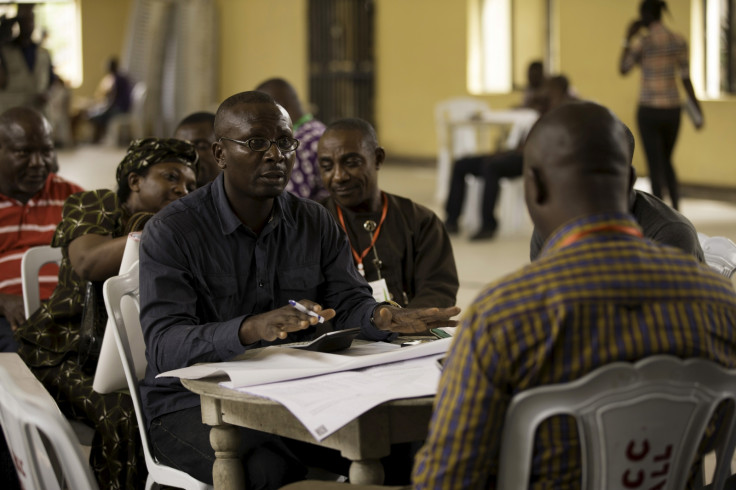Nigeria elections: Boko Haram violence and technical glitches force polling extension

Isolated attacks carried out by Islamist extremist group Boko Haram and technical glitches during voting have forced Nigerian authorities to extend polling by another day in some areas.
The terrorist group – who had vowed to disrupt elections – concentrated their attacks in north of the country, where they aspire to establish an Islamic caliphate.
The attacks took place despite the Nigerian military's assertion on Friday that it had defeated Boko Haram by capturing the town of Gwoza, although the claim could not be verified by independent sources.
In an early morning raid on the town of Miringa in Borno state yesterday, Boko Haram set fire to people's homes and then shot them as they tried to escape. Twenty-five people reportedly died.
A further 20-40 people are thought to have been killed in one attack on the remote village of Burati. The exact death toll is unclear.
"I received a report that people have been killed at Burati town and five people injured. My Commissioner of Education participated in the burial of those killed," Kashim Shettima, governor of Borno, told reporters.
"They had sent messages earlier warning us not to encourage democracy by participating in today's election," said Mallam Garba Buratai, a Miringa resident who saw the attack.
A further 14 people – including Gombe state legislator Umaru Ali – were killed in attacks on the towns of Biri and Dukku in Gombe state.
Technical issues
Despite isolated incidents, elections in Africa's most populous nation were held smoothly.
However, the newly introduced biometric voting card readers malfunctioned in several polling stations. Even incumbent President Goodluck Jonathan was only able to cast his ballot after making several attempts over a 20-minute period.
"I came here at around 7am and we were told that by 8am every process should have started. But I think it is past 8am now and nothing is happening," Aliu Nurudeen, a voter in capital Abuja was quoted as saying by Euronews.
More than 68.8% of Nigeria's 173 million population are eligible to vote. Independent observers from the UN, the European Union and the regional bloc African Union are closely monitoring the polling to ensure free and fair elections.
In spite of the security and technical problems, voters are still turning out en masse to have their say in who leads their country, which essentially boils down to two candidates: Goodluck Jonathan and the former military dictator Muhammadu Buhari.
A 'watershed moment'
Jonathan, of the People's Democracy Party (PDP), faces a tough fight from the All Progressives Congress's (APC) Buhari.
The election is being billed as the tightest presidential race ever since military rule ended in the West African nation 16 years ago.
"For Nigeria, this is a watershed moment — for national security, for the economy and for democratic governance. The West African country is an anchor in the region," Charlotte Florance, a research associate in The Heritage Foundation's Allison Center for Foreign Policy Studies wrote for Fox News.
"The West African country is an anchor in the region… Yet Nigeria is plagued with severe corruption, violent Islamist terrorists and severe economic disparity."
UN Secretary General Ban Ki-moon has also hailed the election process, welcoming that polling was largely without major violence. Earlier elections in Nigeria have been marred by violence and bloodletting. The elections were delayed by six weeks due to security threats posed by the Islamist insurgency led by Boko Haram militants.
© Copyright IBTimes 2024. All rights reserved.






